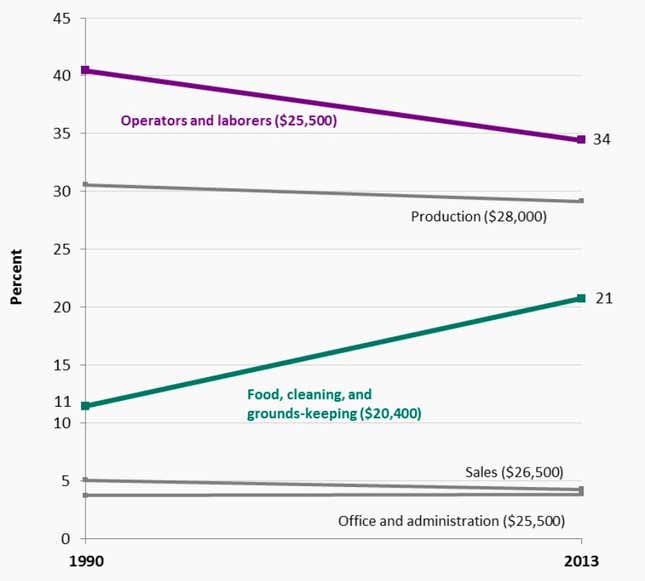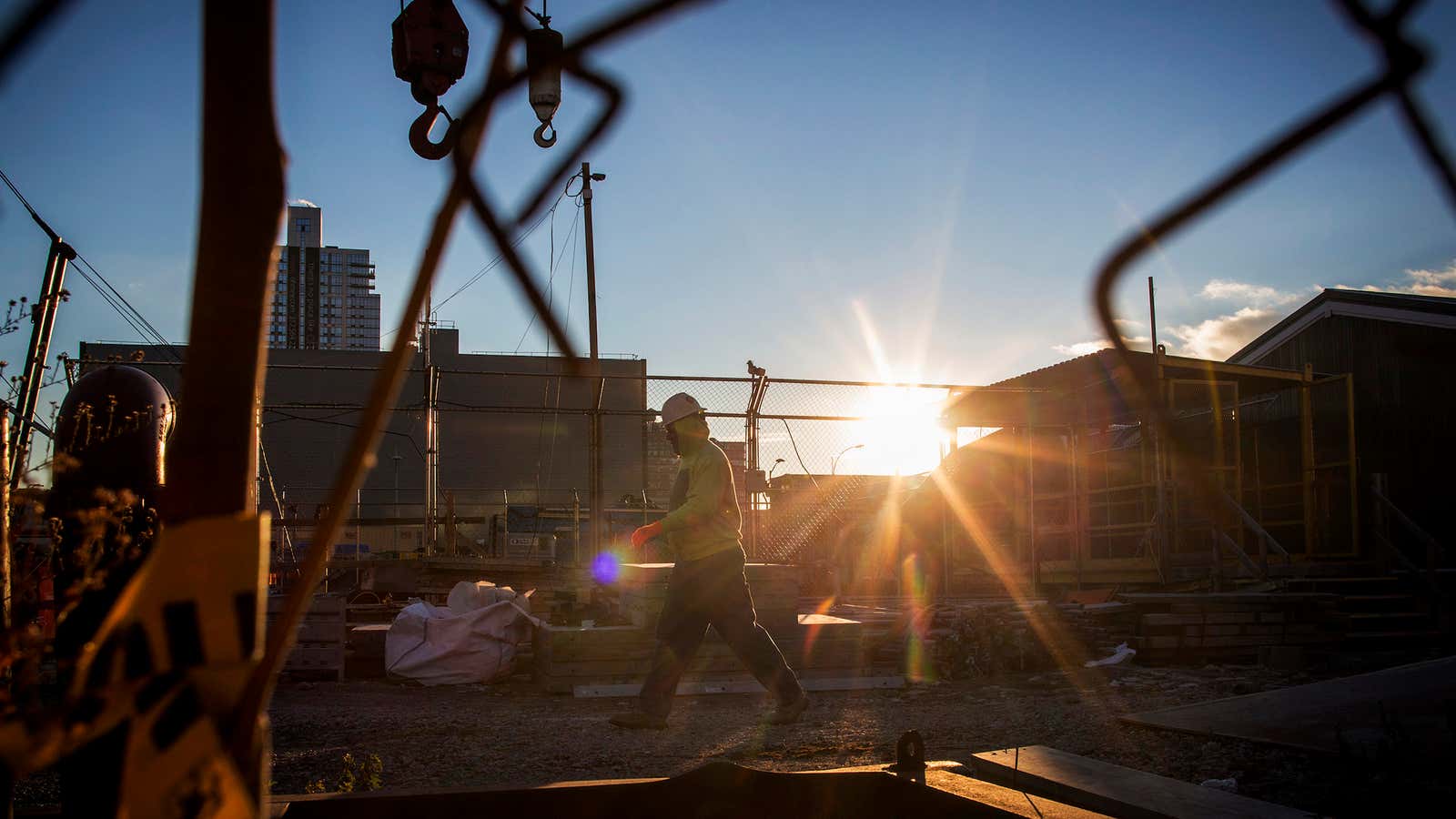Even though employment and earnings have improved for many Americans in the last quarter century, they have worsened pretty dramatically for people with less education, according to a new analysis of changes in US census data between 1990 and 2013.
Men who don’t have a high school degree are earning 20% less than they were two decades ago, according to an analysis from the Hamilton Project (PDF), a group at the Brookings Institution, a Washington DC-based think tank focused on making economic growth more broadly based. (All the data in the report covers people in what are usually their prime earning years, 30-45.)

When it comes to being employed, a group that seems to have it particularly tough is men with just high school or a bit of college, who are 8% less likely to have a full-time job. The share of men in this group who don’t work at all increased from 11% to 18% over this period.
The biggest positive trends were for women with degrees. Women with a bachelors degree are 12% more likely to be employed, and women with advanced degrees are 16% more likely.

There are lot of reasons for this change, but two powerful forces are combining to drive a big hunk of it. From the report:
Men and women with less than a bachelor’s degree are less likely to be working full-time and full-year, and those who continue to work have been moving away from traditional, blue-collar, middle-paying jobs—such as truck drivers, construction laborers, and factory workers—to lower-paying service jobs.
It’s a pretty devastating double blow:

The shift in occupations alone explains as much as a third of the decline in earnings for men without degrees, according to the report.
These aren’t newly identified difficulties. But the new analysis is particularly appealing and robust, as Neil Irwin points out in The Upshot (paywall), because it covers a long time period to avoid cyclical trends, and focuses on a narrow age range to avoid years spent in school or early retirement.
For all the contention about the cost and utility of a college education, it’s hard to argue that it doesn’t pay off in the long run.




